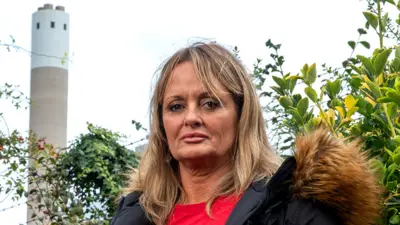We've updated our Privacy and Cookies Policy
We've made some important changes to our Privacy and Cookies Policy and we want you to know what this means for you and your data.
'Breakthrough' in bid to save freshwater pearl mussels
A project to save a threatened population of freshwater pearl mussels in the river Dee has seen a major breakthrough.
Pearl mussels up to 80 years old collected from the river have finally bred at Environment Agency Wales' (EAW) fish hatcheries in Dolgellau, Gwynedd.
It is hoped mussels will be returned to the river some time in the future.
There were once hundreds of thousands in the Dee but they have been in decline as water quality deteriorated.
In a bid to save the mussels, around 60 were collected from stretches of the river in Conwy, Gwynedd and Denbighshire more than five years ago.
They were taken by a team from EAW, Chester Zoo, Denbighshire council, the Countryside Council for Wales and North East Wales Wildlife.
Only 21 of those are alive today and hopes were fading until tiny mussel larvae were spotted in the fish hatcheries this summer.
Huw Jones, from EAW, said: "We think the wild mussels were under a lot of stress in the Dee due to changes in the river and water quality.
"It seems that the few years they have had in the hatcheries may have enabled them to recover enough to breed and it is a credit to the dedicated work of the teams at our hatcheries that we now have baby mussels."
He added that improvements to the river meant the mussels could eventually be returned "to the places their parents came from to boost the populations of this rare and fascinating creature".
"Only the very last remnant of the original population is left now and the remaining mussels seem to be dying of old age without successfully producing any offspring," said Mr Jones.
Serious decline
"In the long term, the project plans to release young mussels back into safe areas of the river Dee, giving hope to this vulnerable species."
Pearl mussels, which are said to be in serious decline in Wales but are protected by British and European law, are sensitive to river pollution.
They can live live for 150 years and grow up to 14cm long.
Sarah Bird, biodiversity officer at Chester Zoo, said: "This is a major breakthrough for this fascinating protected species which is classified as endangered.
"These mussels would be lost from the Dee completely without the help of this project.
"Finding larvae this year has given new hope for the survival of the species in the Dee."
Top Stories
More to explore
Most read
Content is not available








